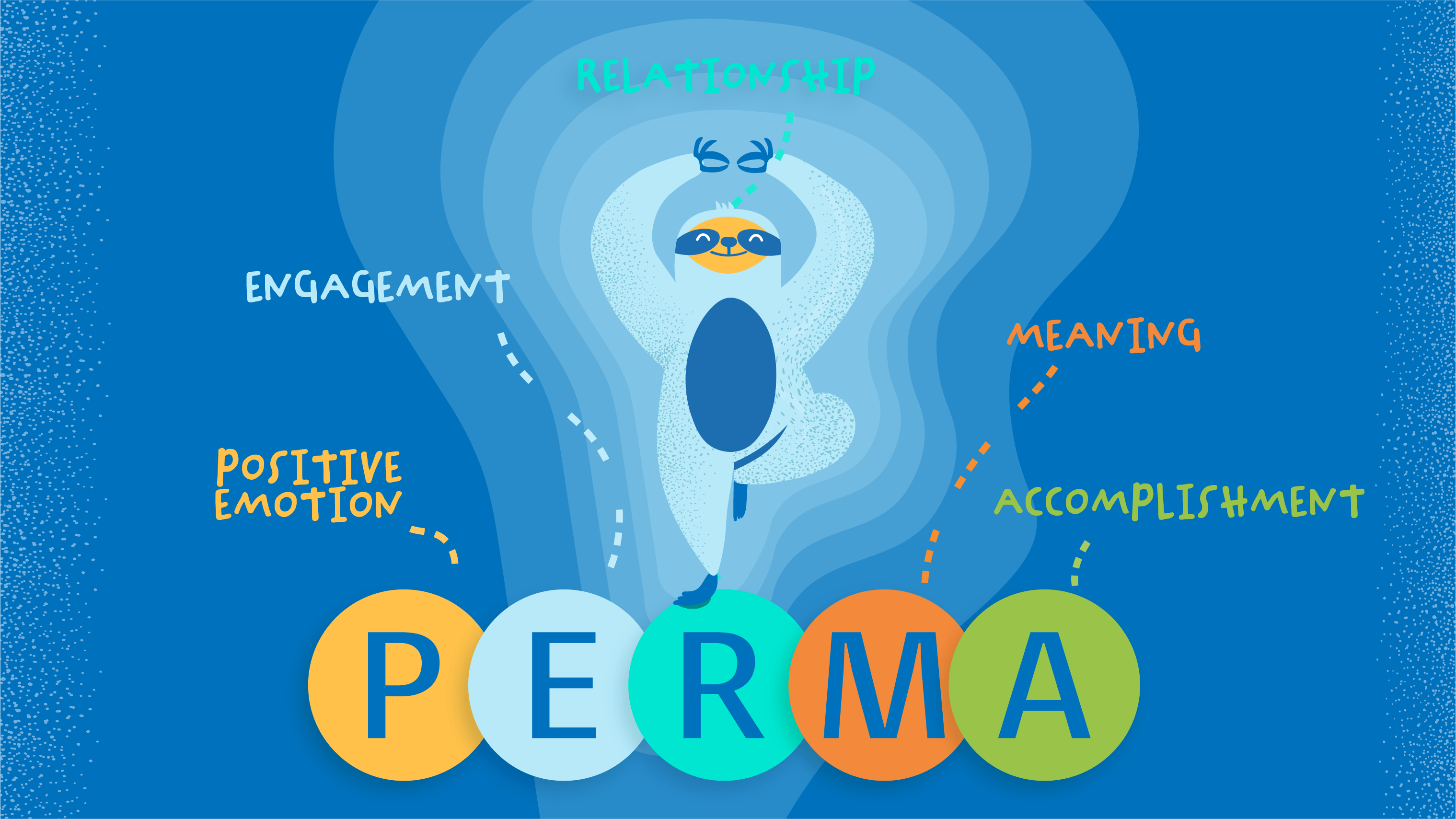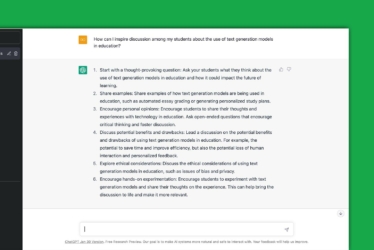Insights
Where are you at? Use insights from positive psychology to improve your wellbeing
Over the last few years, more and more attention has been paid to student wellbeing. This is not surprising. Student wellbeing is an important factor in later career outcomes and wellbeing later in life. A recent study has shown that many students are struggling with mental health issues. In this article, we dive into popular positive psychology models on wellbeing and provide you with a reflection exercise that gives your insight into your wellbeing.

To increase (student) wellbeing and prevent mental health issues, the field of positive psychology researches what makes humans flourish in life. After decades of researching the flaws and deficiencies of the human mind, the psychologist Martin Seligman began to research what makes us happy in the 90’s. Since then, the principles of positive psychology have been applied in all kinds of fields such as education, health care and within organisations.
In his research on wellbeing, Seligman (2011) summarised five pillars of wellbeing in the acronym PERMA:
- Positive emotion
- Engagement
- Relationships
- Meaning
- Accomplishments
These pillars can be seen as the starting point of living a fulfilling life. Pursuing each of these elements is intrinsically motivating and can contribute to wellbeing. Actively reflecting on the aspects of PERMA can enhance your wellbeing, but also decreases psychological distress.
Let’s discuss what each of these pillars stand for.
Positive emotions
Positive emotions include hope, inspiration, fun and curiosity. Barbara Frederickson (American psychologist and expert in the field of positivity) describes in her broaden-and-build theory that people who experience these positive emotions are better able to deal with change and can be more creative. When you experience positive emotions in your learning activities, this contributes to processing information quicker and being able to keep an open mind without jumping to conclusions. Experiencing positive emotions at work also has its benefits, an experiment showed that people in negotiation situations came up with more creative solutions when they had been “positively” influenced by having received a small gift prior to the negotiation. Stimulating positive emotions is different for everyone. Ways to discover what works for you are thinking about things that brought you joy in your youth and tracking your positive emotions for a week.
Engagement
Csikszentmihalyi (an American/Hungarian psychologist) has done extensive research on engagement and ‘flow’. He describes flow as the state you are in when you are completely absorbed in your work or studies. When you are in a state of flow it seems as if time stands still and you forget the world around. To increase flow set clear goals for your tasks, ask for quick feedback and use your strengths to achieve difficult (but achievable) tasks).
Relationships
Humans are inherently social beings. Here relationships refer to the feeling of being supported and valued by others. Having relationships with others such as friendships, feeling connected to your study group, bonding with your housemates or belonging to a student association, has many beneficial effects such as it can help you manage stress, increase your resilience and general health. How do you make time and create opportunities to feel a sense of belonging and connectedness to the people in your class and in your study programme?
Meaning
Meaning is understood here as: having the feeling of contributing to something greater than ourselves. It relates to the feeling of purpose in your life or studies. Having some sense of working towards a meaningful goal is important for experiencing a sense of flourishing. A way to find meaning is going back to the question: What made you choose your current study programme? The answer to this question might change over time but can lead you to your bigger goal in life. There are also many small ways to experience meaning by looking at how your activities are contributing to society. Are you an active plogger (a combination of jogging with picking up litter)? Do you organise events for your study association? Participate in volunteer work?
Accomplishment
By setting realistic goals and working towards them, you can get satisfaction from your work or studies. In their self-determination theory, Ryan and Deci describe that accomplishments are a basic human need. By achieving large or small successes you gain more self-confidence and are more inclined to share your knowledge and skills with others. By breaking up big goals into smaller goals you increase your sense of success. Accomplishments can be getting a good grade, achieving a career goal or something much smaller as being able to run a kilometre more than last month or trying a new recipe and enjoying a delicious diner.
Download “where are you at?” to check how you are doing on each of the PERMA elements
More resources on wellbeing
- If you are struggling with mental health issues reach out to the student psychologist
- Want to learn more about setting goals and creating a reflection habit, check out this article.
- Curious to how you can use positive psychology insights to increase your work efficiency and fun, check out this article
Get in touch

Daniek Bosch
Learning Experience Design
d.bosch@llinc.leidenuniv.nl
Bing Tang
Graphic Designer & Multimedia Producer
b.tang@llinc.leidenuniv.nl


Sources
- https://www.rivm.nl/publicaties/monitor-mentale-gezondheid-en-middelengebruik-studenten-deelrapport-I
- https://www.internationaljournalofwellbeing.org/index.php/ijow/article/view/526/579
- Seligman, M. E. P. (2011). Flourish: A visionary new understanding of happiness and well-being. New York, NY: Free Press.
- Bannik, F. (2016) Positieve psychologie – de toepassing. Boom.
- Frederikson, B. (2004) The broaden–and–build theory of positive emotions. Phil. Trans. R. Soc. Lond. B3591367–1377




